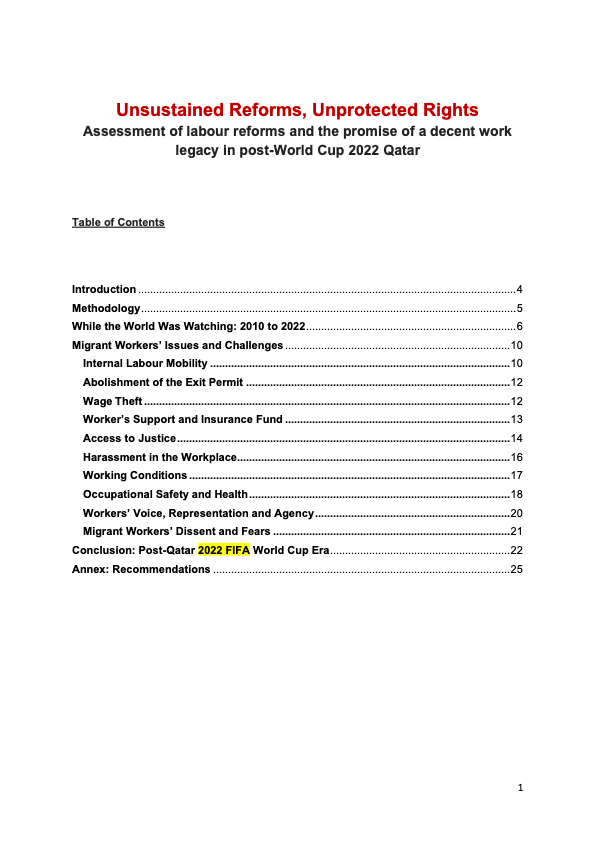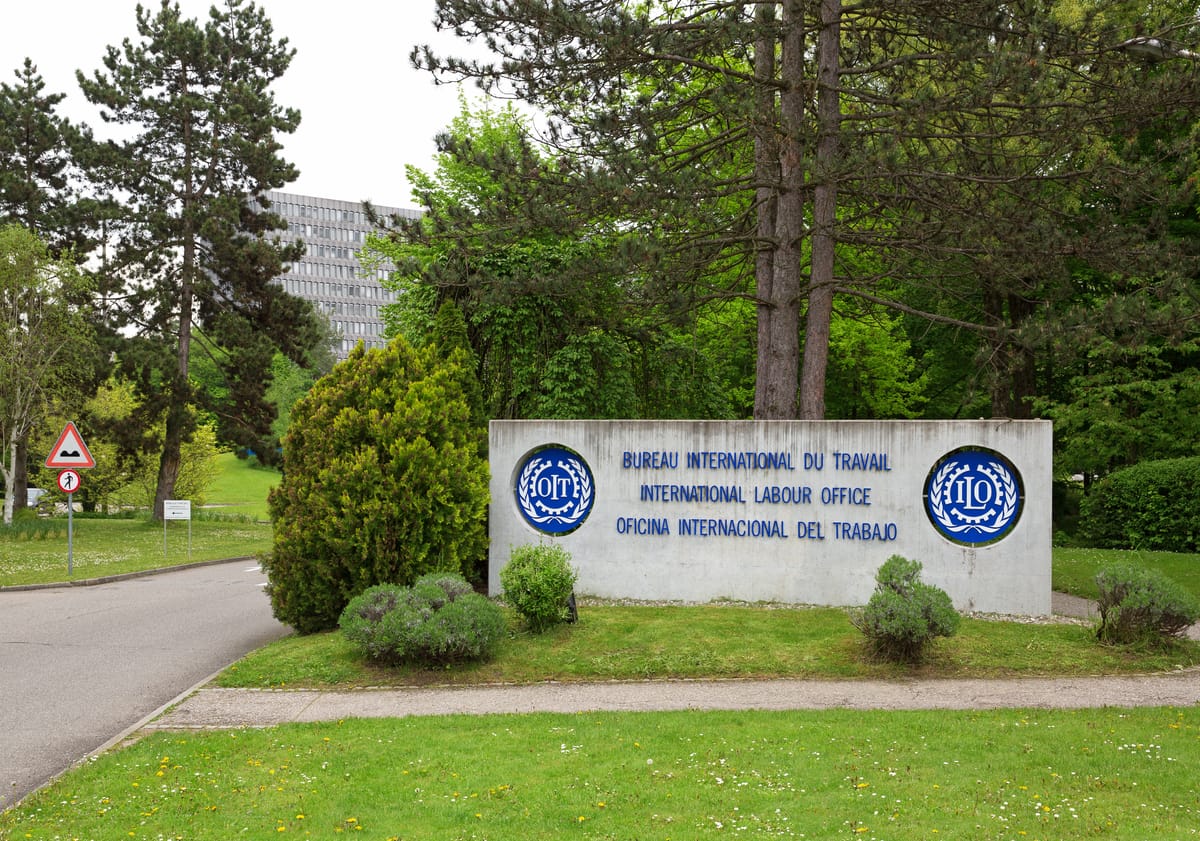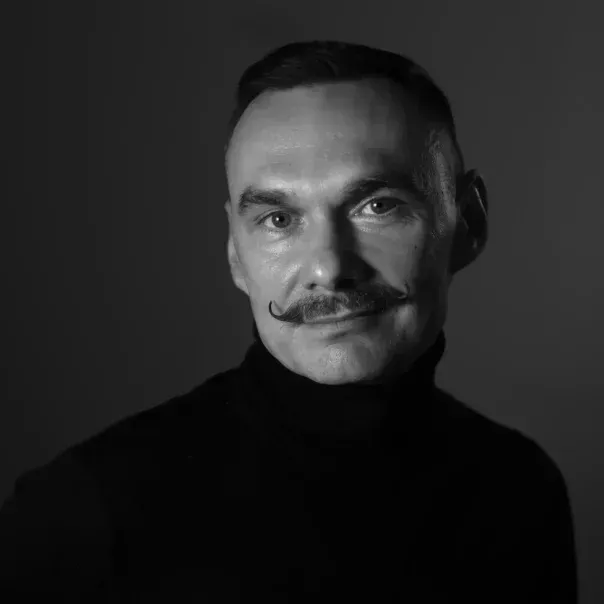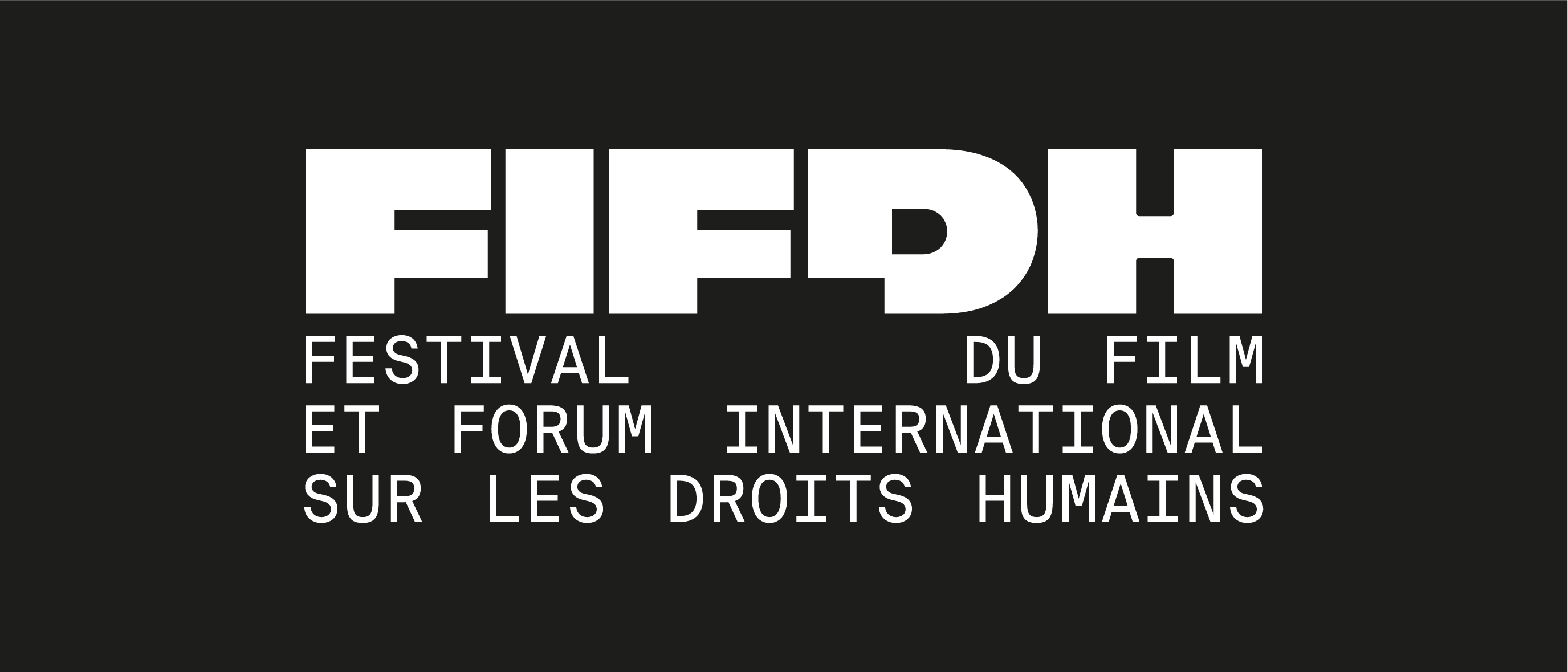#172 THE G|O BRIEFING, MARCH 7, 2024
ILO and Qatar Extend Cooperation Agreement, but with Apparent Changes in Priorities | "Truth Is What Putin Fears Most," says Russian Filmmaker-in-Exile | Should the Geneva Initiative be Revived ?| Double Standards at the UN
Today in the G|O, a report on a new ILO agreement with Qatar, an interview with a Russia filmmaker in exile, and an op-ed on the war in the Middle East.
The International Labour Organization (ILO) announced on Monday (March 4) that it had finally signed the third extension of its cooperation agreement with Qatar, a story The G|O has covered extensively in the past. A careful reading of the communiqué reveals that the ILO's priorities in Qatar might have changed, with the fate of the country's migrant workers no longer the UN Labour agency's main preoccupation. According to the ILO’s Director-General, his organization will now assist the Gulf state in “preparing the workforce for the future of work.” The new agreement could also prove to be a hard sell for the global union federations.
The ILO and Qatar Have Extended Their Agreement for Labour Reforms—with Migrant Workers and Unions No Longer at the Center
The International Labour Organization (ILO) announced last Monday that it has signed an agreement with Qatar “to extend their technical cooperation programme for another four years,” the third such extension. Carefully parsing the ILO’s communiqué, however, reveals what appears to be a clear shift in focus from bettering the fate of poor migrant workers in the country towards working more closely with the private sector, with the stated objective of helping Qatar achieve its “National Vision 2030,” the state blueprint for its grand development plan conceived in 2008.

The ILO’s engagement with Qatar through a cooperation agreement started in 2018, after Doha was able to avoid an ILO Commission of Inquiry following allegations by global unions and human rights defenders of very serious human rights violations against the migrant workers building the 2022 World Cup infrastructure.
Signed in Geneva on Monday, March 4, by the ILO’s D-G Gilbert Houngbo and Qatar’s Minister of Labour Dr Ali bin Samikh Al Marri, the new agreement will now focus “on deepening the effort of the labour reforms adopted in recent years,” and “will also support the adoption of policies in response to the changing dynamics in Qatar’s labour market.” “These policies,” the communiqué continues, “include, among other priorities, increasing the number of women in the workforce, the proportion of skilled migrant workers and enhancing the proportion of Qatari nationals in the private sector.” According to the ILO, the agreement has a budget of $19 million over four years, paid by Qatar.
Underlining the apparent reorientation of priorities, the communiqué discloses that “the new phase of the programme will see closer engagement on a range of issues with the Qatar Chamber of Commerce and Industry, as the representative body for employers in the country,” prompting the Secretary-General of the International Organization of Employers (IOE) to welcome “the next phase of the technical programme between the ILO and Qatar, and its emphasis on working with the private sector.”
Commenting on the signing of the agreement, Director-General Houngbo said that “Major reforms were adopted in recent years, and our focus remains on ensuring the effective implementation of these laws and policies.”
Reinforcing the changing nature of the agreement, the ILO also disclose that “conversations are ongoing between the [Qatari] Government, ITUC [International Trade Union Confederation] and several Global Union Federations concerning the modalities of their continued cooperation,” with the ITUC’s Secretary-General Luc Triangle expressing the Confederation’s wish “to make Qatar a better place for all workers.”
An informed ILO and Qatar labour rights watcher told The G|O that it “clearly appears that the global unions are distancing themselves from the agreement, as the ILO suggests they are negotiating separate accords with Doha. It is unlikely that the new ILO agreement will be accepted by the global union federations.”
As The G|O has extensively reported in the past, promises were made by Qatar to ratify key ILO Conventions, but Doha has so far failed to do so. Freedom of association and the right to collective bargaining—fundamental ILO principles which the ITUC made pre-conditions to continuing its engagement with Qatar—now seem to be off the agenda. And the so-called non-discriminatory minimum wage remains at €280 a month, having seen no increase for more than three years.
Another global union federation, Building and Wood Workers International (BWI), is not mentioned in the ILO announcement but has always been highly active in Qatar. Last year, it wrote a scathing report on the continuous human rights violations in Qatar, an assessment that continues to be shared by major human rights organizations.

One of the key demands of the BWI at that time was the setting up of a Migrant Workers’ Centre that could provide protection against labour abuses. However, Max Tunon, Director of the ILO’s Doha office, was recently quoted as saying “I think the center per se is not part of the four-year plan. Nor was it part of the plan for the past five years. [...] It’s not something that was initially agreed upon by the international unions and the government and the ILO for inclusion within this program.”
BWI did not respond to The G|O when asked if it, like the ITUC, has ongoing discussions with the Qatari government.
The G|O solicited comments about the new agreement from the ITUC but has not yet received a response.
The G|O also aksed the ILO to explain why the agreement was signed before the ITUC and BWI had approved the terms of the program’s third phase?
An ILO spokerson in Doha simply restated the terms of the official announcement, confirming in an email, however, that the two global federations were negotiating separate agreements. "With regard to ITUC and the global union federations, they are committed to continue to engage with the Government of Qatar, building on past cooperation, and are in the process of finalizing the modalities of this engagement."
-PHM
Related content:




“Truth is what Putin fears most. That is why he systematically suppresses it.”

It is impossible to miss the tragic irony of the moment: as Askold Kurov, the Russian-in-exile co-director of Of Caravan and the Dogs, appears on Zoom, I am watching, live, long lines of Alexei Navalny supporters dropping flowers on his coffin, braving the police presence and running the risk of being arrested—as many were that day. He, too, has been following the day’s event. Kurov speaks to me from Turkey, where he now lives, having decided to leave Russia after he and his partner became worried about what they perceived as the growing homophobia in the country since the war on Ukraine started.

I meant to talk to Kurov about his film, which will be shown on Saturday (March 9) at the FIFDH and had led to the scheduling of our chat the day before. That got pushed. Discussion of Navalny’s funeral imposed itself, with images of the cemetery where he was laid to rest coming out of Moscow as we spoke.
“His death is a personal tragedy,” Kurov tells me. “I remember going to Navalny’s first meetings in Moscow in 2011, when he was denouncing election fraud and corruption in Russia. ‘That’s someone I’d be proud to have as Russian president,’ I remember thinking at the time. You could still see him on Russian television, back then. Now, dissent has all but disappeared in Russia.” He shares with me how moved he was by the brief video posted by Navalny’s widow Yulia Navalnaya a few hours earlier, on social media platform X, showing the family together.
Лёша, спасибо тебе за 26 лет абсолютного счастья. Да, даже за три последних года счастья. За любовь, за то, что всегда поддерживал, за то, что смешил даже из тюрьмы, за то что ты обо мне всегда думал.
— Yulia Navalnaya (@yulia_navalnaya) March 1, 2024
Я не знаю, как жить без тебя, но я постараюсь так, чтобы ты там, наверху,… pic.twitter.com/ybF31AuD47
Kurov is naturally soft-spoken. His impeccably twisted mustache gives him an air of timelessness, but this Russian exile lives firmly, acutely, in the present: Over the course of our conversation, it becomes clear that when intensely considering his answers to my questions, a sense of deep sorrow and loss are now part of his new identity, forced on him by tragic and brutal events he never thought he would have to experience. He admits still being off balance: “My interest was always to show Russian reality, focusing on social conflicts and human rights in my country. That’s why I became a filmmaker, and now, as a result of the war, I have been forcefully separated from my own environment, from my people.” But hasn’t living in Turkey provided him with a new experience, inspired him? “So far, no. I haven’t processed the entire experience of living in exile yet, I haven’t found a story to tell.”
How does he describe what he felt when the war started on the morning of February 24, 2022? “This is a difficult question,” Kurov tells me after a short pause. “A sense of utter catastrophe, of course, having so many friends in Ukraine and seeing their messages that Kyiv was being attacked. But the most difficult thing is that you have nothing to compare such a life-changing event with. It was almost eerie, like watching a blockbuster Hollywood film of an alien invasion, but realizing it was actually happening. That was, without any doubt, the hardest thing that has ever happened in my life.”
Of Caravan and the Dogs, whose title is taken from 2021 Nobel Peace Prize co-winner Dmitry Muratov’s Oslo acceptance speech—Muratov will also be present at the Festival—focuses on the closing of the independent newspaper Novaya Gazeta and on the banning by the Russian state of the NGO ‘Memorial,’ branded as a “foreign agent”—a vague, trumped-up accusation the Kremlin has repeatedly used in its crackdown on civil society. Memorial was awarded the Nobel Peace Prize in 2022. The film starts before the war, with signs of an invasion, however, already perceptible in 2021: “In [the] heads of some crazy geopoliticians, a war between Russia and Ukraine is not something impossible any longer,” Muratov told his Norwegian audience when receiving his prize that year.
“We were clearly getting the sense that the regime was preparing the country well ahead of the invasion,” Kurov remembers. But his initial project was to document how the “foreign agent” law was used by Russian authorities across the country to shut down all kinds of NGOs, organizations and associations. The war changed everything.
Of Caravan and the Dogs—the dogs in Muratov’s Oslo speech being journalists who keep speaking truth to power—follows the anguished discussions between Novaya Gazeta’s staff as they grapple, after the war has begun, on how to cover the conflict without accepting Kremlin censorship. It eventually proved impossible, prompting Muratov, a man highly conversant with the Kremlin’s way since before Vladimir Putin—the paper was founded under Mikhail Gorbachev—to shut it down. “I am impressed that Muratov and his team went on for so many days given the risks involved, from heavy fines to jail time,” Kurov tells me, admiring the newsroom’s courage and reminding me that since its founding in 1993, Novaya Gazeta has seen six of its reporters killed in suspicious circumstances, the most famous being Anna Politkovskaya. Kurov filmed, produced and edited Of Caravan and the Dogs with a team named as “Anonymous 1, 2 and 3” in the credits, as they have chosen to remain in Russia. “I understand their choice,” Kurov tells me; “for some, leaving Russia is unthinkable, and I completely understand that.” Novaya Gazeta is still being published, but from Riga, without Muratov.
What does Kurov think is the message of his documentary? “That truth matters, and that truth is what the current regime and Putin fear most. That is why they systemically try to suppress it.” I ask him what he thinks the impact of a documentary like his and those of his fellow directors can have: “Documentaries can change people’s minds, help them interrogate their own engagement, push them to act. This, I believe, is extremely important.”
In 1922, Soviet Russia expelled philosophers, intellectuals, and artists from the country by steamers. People, Trotsky is quoted as saying, that the regime “had not enough grounds to kill, but no room to tolerate.” This episode of Soviet history is referred to as the “Philosophers’ ships.”
“When we started filming, our idea was to release our film on ‘foreign agents’ on the 100th anniversary of the event,” Kurov tells me. “None of these people came back. I hope I won’t suffer the same fate.”
-PHM
Peace between Israel and the Palestinians: It Is Time to Revive the ‘Geneva Initiative’
By Raymond Saner*
A little over 20 years ago, prominent Israeli and Palestinian negotiators launched an unofficial peace effort called the Geneva Initiative (GI), also known as the Geneva Accord. A draft Permanent Status Agreement, it drew on previous official negotiations, international resolutions, the Oslo Accords I & II, the Quartet Roadmap, the Clinton Parameters, and the Arab Peace Initiative. The main backer of the GI, the Swiss Government, ended its funding in 2023. It should be revived, argues Raymond Saner, who evaluated the Geneva Initiative for the Swiss Foreign Ministry. Inspired by the Geneva Initiative, the author proposes a six-point roadmap to find a solution to the conflict, help the region escape the vicious cycle of recurring bloodshed, and reconstruct Gaza, building on the Geneva Initiative's network of Israeli-Palestinian cooperation.
After 76 years of war and violent conflict in the land of Palestine and in light of today’s horrific and brutal war in Gaza, it is high time to find solutions that could lead to a sustained peace and coexistence between Israelis and Palestinians. War-making in the Gaza prison is regressing to primitive levels of trying to win at all costs, no matter how many children, mothers, elderly and sick people are killed on the way to victory—which is not victory, but rather a mindless killing, and a medieval form of hatred.
As bilateral and multilateral high-level diplomatic talks continue about implementing a ceasefire between the parties to allow humanitarian aid into Gaza and a release of the remaining hostages, the international community is also involved in devising a long-term solution for the region. I believe that the Geneva Initiative still represents a sound blueprint for a long-lasting, sustainable peace.
The Geneva Initiative served as a detailed, comprehensive proposal for resolving the Israeli-Palestinian conflict, addressing core issues such as borders, Jerusalem, refugees, and security:
- Borders: The initiative proposes the establishment of borders based roughly on the 1967 lines (the Green Line), with land swaps to accommodate some Israeli settlements in the West Bank.
- Jerusalem: It suggests that Jerusalem should serve as the capital of both Israel and Palestine, with Jewish neighborhoods under Israeli sovereignty and Arab neighborhoods under Palestinian sovereignty. Additionally, it proposes special arrangements for the Old City, including joint control over holy sites.
- Refugees: The Geneva Initiative suggests a compromise on the issue of Palestinian refugees, with most refugees to be resettled in the future Palestinian state, compensation for refugees, and a limited number allowed to return to Israel under family reunification schemes.
- Security: The initiative addresses security concerns for both Israelis and Palestinians, including demilitarization of the future Palestinian state, security arrangements along the border, and international monitoring mechanisms to ensure compliance.
It is crucial that parties in conflict continue to talk, and to explore, with their respective communities, what can be done to lead to peace rather than more war—and they must be supported in this. Restarting the Geneva Initiative and focusing on the six-point plan outline below, even if it may sound utopian, could provide the framework for such discussions.
- Point 1. Exchange the hostages taken by Hamas in return for Palestinians kept in Israeli prisons. Which and how many hostages and prisoners are released can be established through negotiations.
- Point 2. Let Hamas (both the fighters and party officials) leave Gaza and move to a country willing to shelter them—for instance Turkey or Qatar, both of which support Hamas; all three are close to the Muslim Brotherhood. Such an exit would be similar to what happened when Yasser Arafat and the PLO leadership were allowed to evacuate by sea from Beirut to Tunis.
- Point 3. Invite Palestinian factions to nominate a joint Palestinian authority for the ensuing negotiations and reconstruction of war-torn Gaza and the parts of the West Bank that have been destroyed by settlers and IDF military forces. Invite the newly constituted Palestinian Authority to re-establish itself in Gaza to start the reconstruction process, led by Palestinians for Palestinians. Financial and technical support by third parties should be welcomed but conditionalities should not be accepted—for instance, reconstruction based on the Washington Consensus requirements.
- Point 4. Negotiations for a two-state solution or a confederation (of Israel and Palestine) should be started, but all settlements in occupied land must be stopped without exceptions. Several current leaders should not be retained in any function or position for all of the preceding points, particularly not Israeli PM Benjamin Netanyahu or Yahya Sinwar, head of Hamas in Gaza, both of whom have committed multiple war crimes and should be sent for trial—an accountability measure—to the International Criminal Court in the Hague. Also not be retained is Mahmoud Abbas, who has blocked elections since 2009 and is seen as unable to stand up to Israeli pressures.
- Point 5. Creation of a constitution, either for two states or for a confederation. If seen as useful, an international peace force could ensure a green line and the many walls should be dismantled. A select group of guarantor countries should also be selected, without individual intervention rights, e.g., Qatar, Saudi Arabia (KSA), USA, China, Egypt, Iran and Turkey.
- Point 6. Invitation for China to mediate a deal between Iran-Hezbollah-Syria with USA and the four western nuclear powers, in exchange for an agreement by Iran to stop support of groups involved in armed violence and actions in the Palestinian territory.
*Raymond Saner is the co-founder of the Geneva-based Centre for Socio-Eco-Nomic Development (CSEND). As an evaluator and consultant, he has been involved in monitoring the impacts of the Oslo Accords. He first launched his six-point proposal in October 2023. saner@csend.org.
This Op-ED is largely excerpted from a longer paper, available below.
About the Middle-East-Related content:






